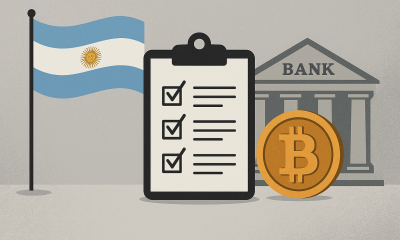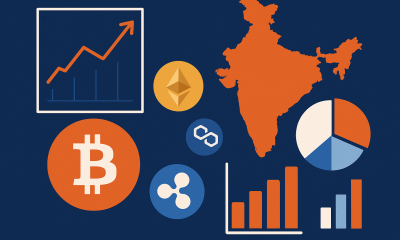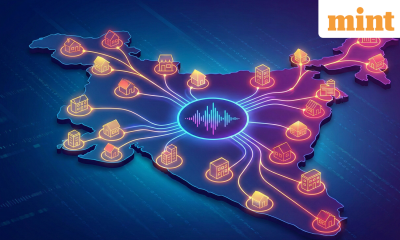

Metaverse
Mint Primer: What if someone uses ChatGPT for military work? – Crypto News
Until recently, OpenAI wouldn’t allow its models to be used for activity that had “high risk of physical harm, including weapons development, military and warfare.” Now it has removed the words ‘military’ and ‘warfare’. Is this a routine update, or should we be worried?
What is the policy change at OpenAI?
Until recently, OpenAI had explicitly banned the use of its models for weapons development and military and warfare. But on 10 January, it updated its policy. It continues to prevent the use of its service “to harm yourself or others”, citing “develop or use weapons” as an example, but has removed the words ‘military’ and ‘warfare’, as first pointed out by The Intercept. With OpenAI already working with the Pentagon on a number of projects including cybersecurity initiatives, there’s concern in some quarters that this softening of stance could result in the misuse of GPT-4 and ChatGPT for military and warfare.
What is the context of this policy change?
Microsoft Corp., OpenAI’s biggest investor, already has software contracts with the armed forces and other government branches in the US. In September 2023, the US Defense Advanced Research Projects Agency (DARPA) said it would collaborate with Anthropic, Google, Microsoft and OpenAI to help develop “state-of-the-art cybersecurity systems”. Anna Makanju, OpenAI’s vice-president of global affairs, said in an interview at the World Economic Forum in Davos on 16 January that the company had initiated talks with the US government about methods to assist in preventing veteran suicides.
What does OpenAI have to say on this?
OpenAI told TechCrunch that while it does not allow its platform to be used to harm people, develop weapons, for communications surveillance, or to injure others or destroy property. There are, however, “national security use cases that align with our mission”, such as its partnership with DARPA to develop cybersecurity tools.
Can AI be used to make weapons?
Some fear AI-enabled ‘robot generals’ may eventually be able to launch nuclear weapons. The WEF terms adverse outcomes of AI among the top risks in its Global Risks Report 2024. On 16 May, 2023, OpenAI CEO Sam Altman told a US Senate subcommittee meeting, “If this technology goes wrong, it can go quite wrong…” On 28 May, 2023, Dario Amodei, CEO of Anthropic, testified at another subcommittee that AI models could be misused to make bioweapons if appropriate guardrails are not put in place.
Do we need more laws to address the issue?
Some experts believe AI-powered machines will eventually think and act like humans—so-called artificial general intelligence (AGI), or artificial super intelligence (ASI). There is broad agreement that a draft risk-based European Union AI Act; the guiding principles and AI code of conduct by the G-7; and the US AI Bill are steps in the right direction. India too is expected to introduce the Digital India Act soon with guardrails to regulate AI and intermediaries. That said, fear of AI should not stifle innovation.
-

 Cryptocurrency1 week ago
Cryptocurrency1 week agoIlluminating progress: Is a $140K income ‘poor’? – Crypto News
-

 Technology1 week ago
Technology1 week agoSamsung Galaxy S25 Ultra 5G for under ₹80,000 on Flipkart? Here’s how the deal works – Crypto News
-
Technology1 week ago
Crypto Lawyer Bill Morgan Praises Ripple’s Multi-Chain Strategy as RLUSD Hits $1.1B – Crypto News
-

 Blockchain6 days ago
Blockchain6 days agoAnalyst Reveals What You Should Look Out For – Crypto News
-

 others1 week ago
others1 week agoGold holds strong at $4,200 as Fed-cut anticipation builds – Crypto News
-
others6 days ago
Breaking: Labor Department Cancels October PPI Inflation Report Ahead of FOMC Meeting – Crypto News
-

 Cryptocurrency6 days ago
Cryptocurrency6 days agoArgentina moves to reshape crypto rules as banks prepare for Bitcoin services – Crypto News
-

 Blockchain5 days ago
Blockchain5 days agoStripe and Paradigm Open Tempo Blockchain Project to Public – Crypto News
-
others1 week ago
Bitcoin Price Forecast as BlackRock Sends $125M in BTC to Coinbase — Is a Crash Inevitable? – Crypto News
-

 Technology1 week ago
Technology1 week agoWorking on a screen all day? These 8 LED monitors in Dec 2025 are kinder on your eyes – Crypto News
-

 Cryptocurrency1 week ago
Cryptocurrency1 week agoFlorida Appeals Court Revives $80M Bitcoin Theft – Crypto News
-

 Cryptocurrency1 week ago
Cryptocurrency1 week agoCrypto Holiday Gift Guide 2025 – Crypto News
-

 Blockchain5 days ago
Blockchain5 days agoBMW Helps JPMorgan Drive Blockchain-Based FX Payments – Crypto News
-
others1 week ago
XRP Price Prediction As Spot ETF Inflows Near $1 Billion: What’s Next? – Crypto News
-

 others1 week ago
others1 week agoThe rally to 7120 continues – Crypto News
-
others1 week ago
Morgan Stanley Turns Bullish, Says Fed Will Cut Rates by 25bps This Month – Crypto News
-

 Blockchain1 week ago
Blockchain1 week agoBitcoin Buries The Tulip Myth After 17 Years: Balchunas – Crypto News
-

 Cryptocurrency1 week ago
Cryptocurrency1 week agoCoinDCX data reveals India’s rising appetite for diversified digital assets – Crypto News
-

 Technology1 week ago
Technology1 week agoCloudflare Resolved Services Issues Caused by Software Update – Crypto News
-
Technology1 week ago
Solana Price Outlook: Reversal at Key Support Could Lead to $150 Target – Crypto News
-

 others1 week ago
others1 week agoCanadian Dollar soars after upbeat labor report – Crypto News
-

 Cryptocurrency1 week ago
Cryptocurrency1 week agoWhy Ethereum strengthens despite whale selling – Inside Asia premium twist – Crypto News
-

 others1 week ago
others1 week agoNasdaq futures hold key structure as price compresses toward major resistance zones – Crypto News
-

 others1 week ago
others1 week agoNasdaq futures hold key structure as price compresses toward major resistance zones – Crypto News
-
Business1 week ago
Bitcoin, ETH, XRP, SOL’s Max Pain Price as Over $4B Options to Expire – Crypto News
-
Business1 week ago
Is ZCash Price Set for a Bigger Rally After Its 10% Surge on the Bitget Listing? – Crypto News
-
others1 week ago
Colombia Consumer Price Index (YoY) below forecasts (5.45%) in November: Actual (5.3%) – Crypto News
-
Technology1 week ago
Bitcoin Stalls Ahead of FOMC as Analyst Van de Poppe Sees No Break Until Tuesday – Crypto News
-

 Technology1 week ago
Technology1 week agoFrom security camera to gaming hub: 6 Easy tricks to make your old smartphone genuinely useful again – Crypto News
-

 Cryptocurrency1 week ago
Cryptocurrency1 week agoGlassnode report reveals Bitcoin’s growing stability amid ETF activity and RWA expansion – Crypto News
-
others1 week ago
$1.3T BPCE To Roll Out Bitcoin, Ethereum and Solana Trading For Clients – Crypto News
-

 others1 week ago
others1 week agoStocks survive PCE and consumer data – FOMC too? – Crypto News
-

 Cryptocurrency1 week ago
Cryptocurrency1 week agoThursday links: Prediction markets, agent hackers, quantum risks – Crypto News
-

 Technology7 days ago
Technology7 days agoStarlink India pricing revealed: How much does monthly plan cost and what are its benefits? – Crypto News
-
others5 days ago
Bitcoin, Ethereum, XRP, Solana Rally Ahead of Fed Rate-Cut Decision – Crypto News
-

 Metaverse1 week ago
Metaverse1 week agoGoogle’s new AI tech unmasks fake images. – Crypto News
-

 Cryptocurrency1 week ago
Cryptocurrency1 week agoBitcoin whales freeze – Is BTC drifting toward $86.5K danger zone? – Crypto News
-
Business1 week ago
HashStaking Review: The Smarter Way to Grow Your Crypto in 2025 – Crypto News
-
Technology1 week ago
Peter Brandt Hints at Further Downside for Bitcoin After Brief Rebound – Crypto News
-
Business1 week ago
Why is the LUNC Price Up 70% Despite the Crypto Market’s Decline? – Crypto News
-
others1 week ago
United States Consumer Credit Change came in at $9.18B, below expectations ($10.5B) in October – Crypto News
-

 Technology1 week ago
Technology1 week agoSamsung’s Galaxy S26 range leaks with circular cameras and Android 16 upgrade: What to expect – Crypto News
-

 others1 week ago
others1 week agoAussie eyes YTD high after channel breakout – Crypto News
-

 Technology1 week ago
Technology1 week agoTier 2 and Tier 3 cities drive over 90% of engagement on audio social platforms in India, says report – Crypto News
-

 Blockchain1 week ago
Blockchain1 week agoBittensor Set for First TAO Halving on Dec. 14 – Crypto News
-

 others1 week ago
others1 week agoNasdaq futures hold key structure as price compresses toward major resistance zones – Crypto News
-

 Blockchain7 days ago
Blockchain7 days agoSolana (SOL) Recovery Momentum Hinges on Price Closing Firmly Above $140 – Crypto News
-

 Blockchain7 days ago
Blockchain7 days agoBitcoin Santa Rally Talk Meets Last FOMC of 2025 – Crypto News
-

 Blockchain7 days ago
Blockchain7 days agoEthereum Founder Breaks Silence With Major Upgrade Proposal – Crypto News
-
Business6 days ago
Solana Price Set for $150+ as Bullish Sentiment Rises in Crypto Market – Crypto News
















